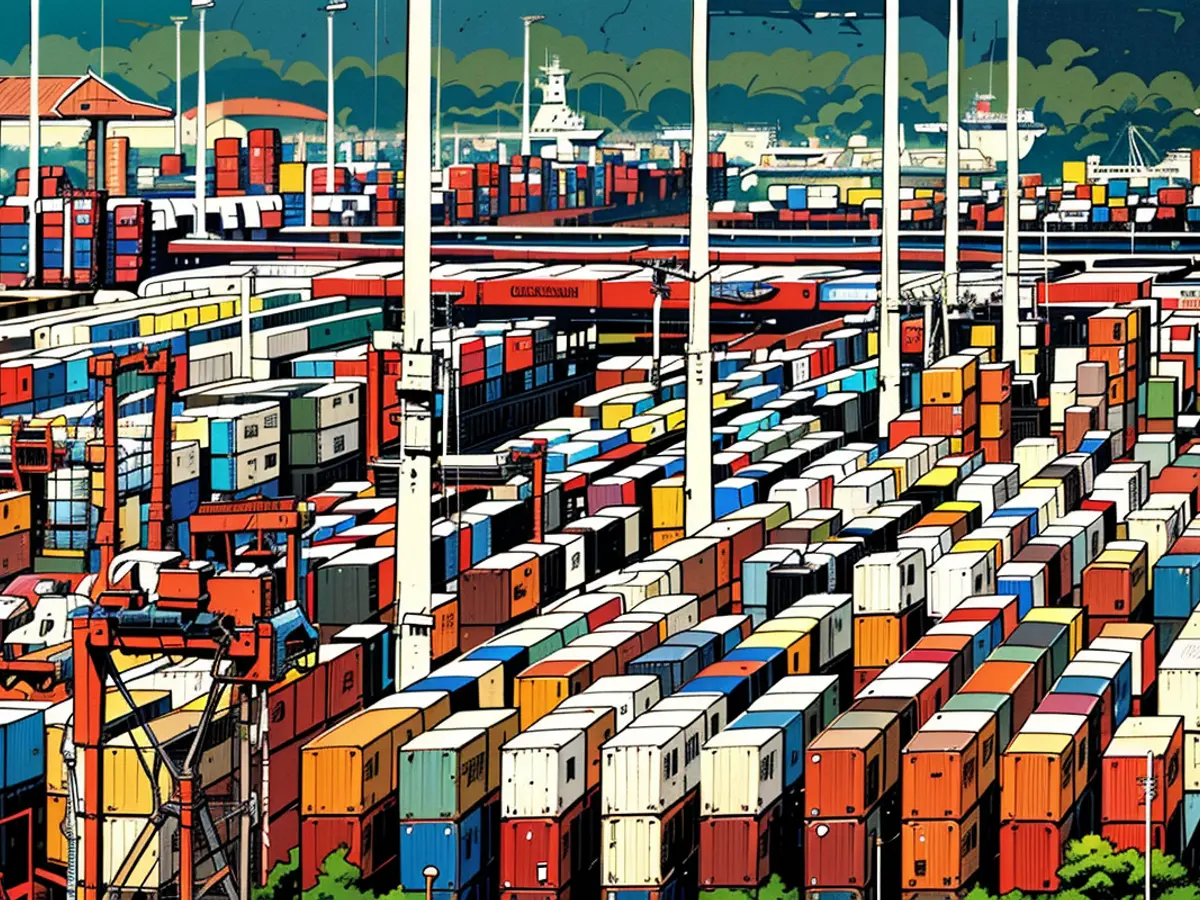Hamburg's Harbor is Redesigned and Expanded - Container terminals largely cease operations due to worker strike
Workers at Hamburg's container terminals launched a warning strike last Friday, bringing operations to a halt. Verdi, the union representing the workers, revealed that turnout in the initial strike during the ongoing collective bargaining round was high. The strike commenced around 5:30 am and was anticipated to continue through late evening.
This move comes after unsuccessful negotiations between Verdi and the Central Association of German Seaport Employers (ZDS) in Wilhelmshaven on Wednesday and Thursday. Verdi hopes to ratchet up pressure on employers by initiating the warning strike. A total of 11,000 workers are concerned about this negotiation, with 6,000 of them situated in Hamburg.
The terminals of companies like Hamburg Port and Logistics AG (HHLA) and Eurogate suffered from this disruption. An HHLA representative told dpa that most of the company's affiliates at the Hamburg location would join the strike. This includes the container terminals Burchardkai (CTB), Altenwerder (CTA), and Tollerort (CTT). "These terminals are expected to be almost completely shut down today due to the strike," the spokesperson said. Five massive container ships, including the 400-meter-long "HMM Helsinki" with a cargo capacity of around 24,000 standard containers (TEU), were tied up at the Eurogate terminal and the CTB terminal on Friday afternoon.
The terminals had planned to restore production in the late evening and had additional steps slated for the weekend to balance out the shutdown triggered by the strike. Among these measures are prolonged truck inspection operating hours and more night shifts for train inspection.
Maren Ulbrich of Verdi defended the warning strike, arguing that the offer from the employers was inadequate. According to her, it amounts to just a real wage raise for the workers, and the social component is woefully insufficient. "Employees need a significant raise in their wages to cover skyrocketing living expenses," she explained. In addition, Ulbrich emphasized the need for wage disparities between different employee groups to be lessened.
ZDS had initially provided a 2.5% wage increase timed for June 1, an additional 60 cents per hour, and a shift premium bump to 2.50 euros. The third round of negotiations is scheduled to take place on June 17 and 18 in Hamburg. Verdi is calling for a retroactive wage hike of three euros from June 1 and a corresponding adjustment of shift premiums for employees with year-long contracts. "This is meant to ensure that, in particular, lower-wage groups receive noticeably higher salaries, which have been hard hit by inflation over the years," Ulbrich asserted.
Read also:
- The warning strike by harbor workers could lead to increased tariffs in transportation, potentially affecting shipping companies reliant on the Port of Hamburg, such as the United Services Union.
- The employer and trade unions, including the German Press Agency, have been closely following the developments at the container terminals in Wilhelmshaven and Hamburg, where the warning strike is causing significant disruptions.
- The container terminal operators in Wilhelmshaven and Hamburg, including HHLA and Eurogate, have been issuing warnings to their clients regarding potential delays and diversion of cargo due to the ongoing warning strike.
- Following the warning strike, German employers in the shipping industry are urging the German government to intervene and mediate the dispute between the workers' union and the Central Association of German Seaport Employers, as the dispute could potentially impact the broader economy if not resolved.
- The impact of the warning strike on global container shipping could be significant, as Hamburg is one of the busiest container ports in Europe, handling over 11 million standard containers (TEU) annually, and any disruption could cause a ripple effect throughout the global logistics industry.
- The warning strike has put a spotlight on the growing tension between workers and employers in the German shipping industry, with unions like Verdi pushing for higher wages and improved working conditions to counteract rising living expenses.
- Despite the warning strike, some container terminals in Hamburg, like the CTB and CTA, have managed to operate with a skeleton crew and have introduced extended shift hours to mitigate the impact on their clients and keep cargo moving through the Port of Hamburg.








